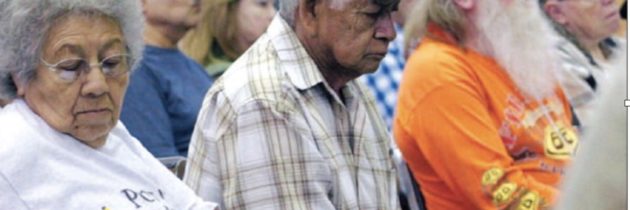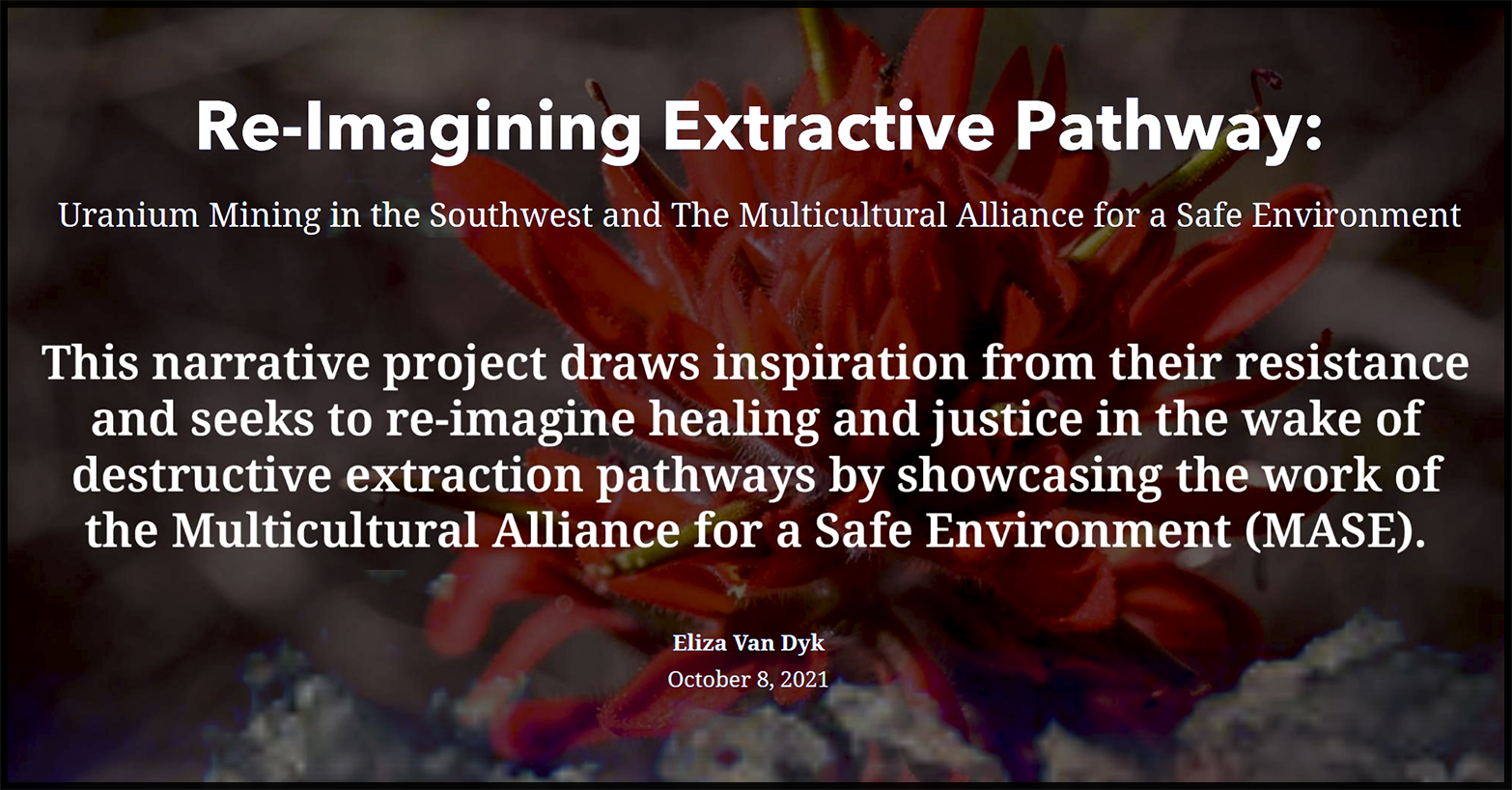Voices needed to propel RECA to Congress before clock runs out
RILED ABOUT RECA
By Kathy Helms, August 24, 2018
Special correspondent
GRANTS — More than 100 people poured into the former Cibola County Complex this past Saturday, hoping for word that Congress is ready to amend the Radiation Exposure Compensation Act. Unfortunately, Congress is not to that point yet.
But those who worked in the uranium industry after Dec. 30, 1971, and were excluded from receiv ing compensation because the United States was no longer the sole purchaser of uranium, are closer to having Congress consider the bill than they have been in a decade. And if not this year, then maybe the next. But even that option is scheduled to go away in 2020.
Susan Gordon, of the Multicultural Alliance for a Safe Environment, said that after Uranium Workers Day at the New Mexico Legislature in 2017, they started a campaign to raise the visibility of the RECA amendments.
More than 7,000 postcards were sent to the officemof Sen. Chuck Grassley, R-Iowa, chair of the Senate Judiciary Committee. “That’s where the RECA amendments have been sitting for like 10 years,” Gordon said.
“As a result of that, last year they scheduled two oversight hearings. Those oversight hearings are not actually considering the bill itself, but they’re educational opportunities. They both were canceled at the last minute,” she said. “At that point Congress was debating whether or not to shut the government down, so shutting the government down took precedence over our RECA hearing. But it was rescheduled again for June of this year.”
Slow but sure
On the Monday before the June 27 hearing, Gordon said, they delivered binders to every member of the Senate Judiciary Committee and also to the New Mexico delegation. When the hearing occurred, Navajo Nation Vice President Jonathan Nez and U.S. Sen. Tom Udall, D-N.M., spoke on behalf of the uranium workers.
“One of the things about this hearing is it was going to be focused exclusively on downwinders, and that was because the hearing was put forward by Senator (Mike) Crapo from Idaho,” Gordon said. “They don’t have a lot of uranium miners up there, but they have a lot of downwind communities from these above-ground nuclear weapons explosions.”
The Post ‘71 Uranium Workers Committee and MASE did another postcard campaign, and in a very short period of time, another 500 postcards were sent to Crapo’s office in Idaho rather than his D.C. office. Through that campaign and the efforts of others, including New Mexico’s congressional delegation, the Senate committee decided to include the uranium workers in the hearing, although they were not allowed to present oral testimony.
“This is progress,” Gordon said. “We know it’s slow, we know it’s tough, but we’re going to keep at it.”
Lobbying Congress
Linda Evers, co-chair of the Post ‘71 Uranium Workers Committee, attended the June 27 Senate oversight hearing along with Larry King, of Churchrock.
They met with members of the Navajo Nation Washington Office the afternoon before the hearing. “We thought we were going to get the standard 15 to 30 minute meeting. We actually met with them for two hours,” Evers said. “They had several suggestions, one of them being (to send) a single letter with a lot of signatures, so we took that up by the horns and we’re running with that.”






